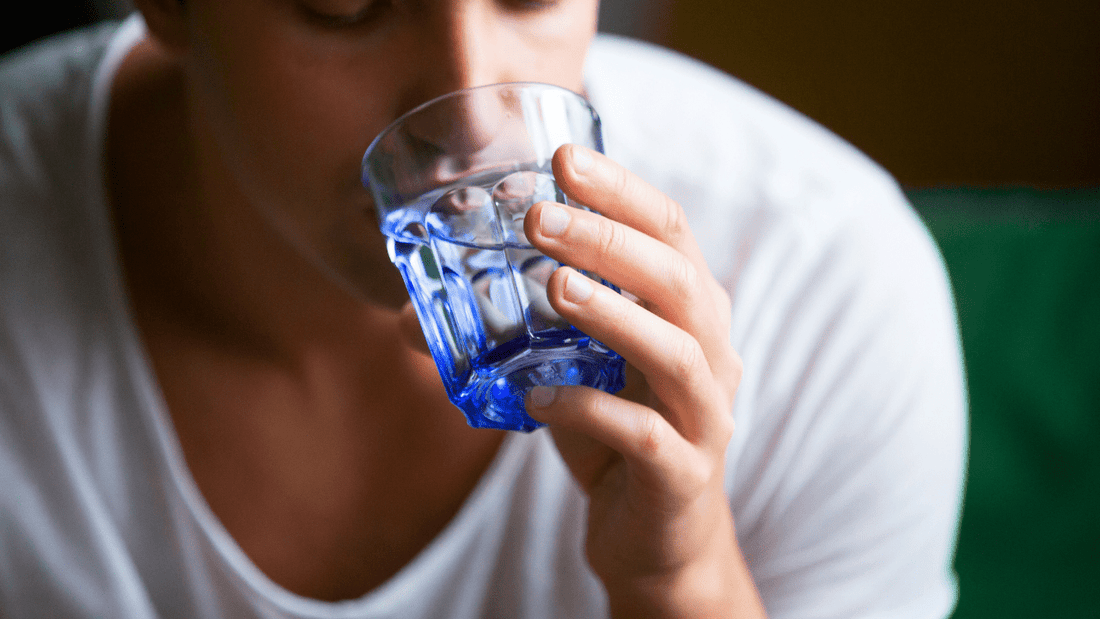
Can Dehydration Cause Sleep Apnea?
Share
Sleep apnea is a serious sleep disorder that affects millions of people worldwide. It is characterized by repeated interruptions in breathing during sleep, which can lead to a range of health complications, including fatigue, cardiovascular issues, and cognitive impairment. While there are many known risk factors for sleep apnea, one lesser-discussed factor is hydration. Could dehydration play a role in the severity of sleep apnea? In this article, we will explore the connection between sleep apnea and dehydration and examine how staying properly hydrated may improve sleep quality.
The Link Between Sleep Apnea and Dehydration
Many people wonder: can dehydration cause sleep apnea? While dehydration itself may not directly cause sleep apnea, it can contribute to factors that exacerbate the condition. Dehydration and sleep apnea are linked because hydration plays a crucial role in maintaining proper airway function. The body relies on moisture to keep mucus membranes in the throat and nasal passages lubricated. When dehydration occurs, these tissues can become dry and irritated, increasing the likelihood of airway obstruction during sleep.
Additionally, dehydration can lead to thicker mucus production, which can further block the airways and make breathing more difficult. This can worsen symptoms of sleep apnea and increase the number of apneic events throughout the night.
How Dehydration Affects Sleep Quality
Dehydration doesn’t just impact those with sleep apnea—it can negatively affect sleep quality for anyone. If you’ve ever asked yourself, can dehydration make it hard to sleep, the answer is yes. Here are several ways dehydration can interfere with restful sleep:
-
Dry Mouth and Throat: When dehydrated, the body produces less saliva, leading to dry mouth and discomfort that can disrupt sleep.
-
Increased Snoring: Dehydration can cause the throat tissues to become dry and sticky, increasing resistance in the airway and leading to more frequent snoring.
-
Leg Cramps: A lack of proper hydration can lead to muscle cramps and restlessness at night, further disturbing sleep.
-
Elevated Heart Rate and Body Temperature: Dehydration can cause an increase in heart rate and body temperature, making it harder to fall and stay asleep.
If you frequently experience dehydration insomnia symptoms, such as difficulty falling or staying asleep, waking up frequently, or feeling unrested in the morning, poor hydration may be a contributing factor.
Can Dehydration Lead to Insomnia?
The relationship between dehydration and sleep apnea is just one aspect of how hydration impacts sleep. Many people wonder, can dehydration cause insomnia? Research suggests that dehydration can make it difficult to fall asleep and stay asleep. Does hydration affect sleep? Absolutely—being well-hydrated helps regulate body temperature, supports melatonin production, and ensures the body functions optimally while you sleep.
Some common dehydration insomnia symptoms include:
-
Feeling restless or unable to relax before bed
-
Waking up frequently throughout the night
-
Experiencing night sweats
-
Waking up with a dry mouth or throat
-
Feeling fatigued despite getting enough sleep
Preventing Dehydration During Sleep
Since dehydration while sleeping can worsen sleep apnea and overall sleep quality, it’s important to take steps to stay properly hydrated. Here’s how you can prevent dehydration during sleep:
-
Drink Water Throughout the Day – Staying hydrated during the day helps maintain fluid balance, reducing the chances of waking up dehydrated.
-
Limit Caffeine and Alcohol Intake Before Bed – Both caffeine and alcohol can contribute to dehydration and disrupt sleep.
-
Use a Humidifier – If you suffer from nighttime dehydration, using a humidifier in your bedroom can help keep the air moist and prevent your airways from drying out.
-
Avoid Excessive Salt Before Bed – A high-sodium diet can contribute to fluid imbalance and increase the risk of dehydration.
-
Monitor Your Water Intake – While staying hydrated is essential, avoid drinking excessive amounts of water right before bed to prevent frequent trips to the bathroom.
Can You Get Dehydrated While Sleeping?
A common question many people ask is, do you get dehydrated when you sleep? The answer is yes. The body loses fluids overnight through respiration, sweating, and metabolic processes. Some individuals may be more prone to dehydration when sleeping, especially if they breathe through their mouth or use a CPAP machine without a humidifier.
For those with sleep apnea, dehydration during sleep can be an even greater issue. CPAP therapy, while highly effective for managing sleep apnea, can sometimes lead to dryness in the nasal passages and throat, particularly if a humidifier is not used. This makes it crucial for sleep apnea patients to prioritize hydration.
Conclusion
While dehydration alone may not be the direct cause of sleep apnea, it can certainly exacerbate its symptoms and contribute to poor sleep quality. Can dehydration keep you awake? Yes, it can. Ensuring proper hydration throughout the day and using strategies to prevent dehydration while sleeping can help improve sleep quality and overall well-being.
If you suffer from sleep apnea and dehydration, consider adjusting your hydration habits, using a humidifier, and making small lifestyle changes to see if your symptoms improve. Proper hydration, along with sleep apnea treatment, can go a long way in ensuring restful, uninterrupted sleep.
By staying mindful of your hydration levels, you can take one more step toward better sleep and overall health.
